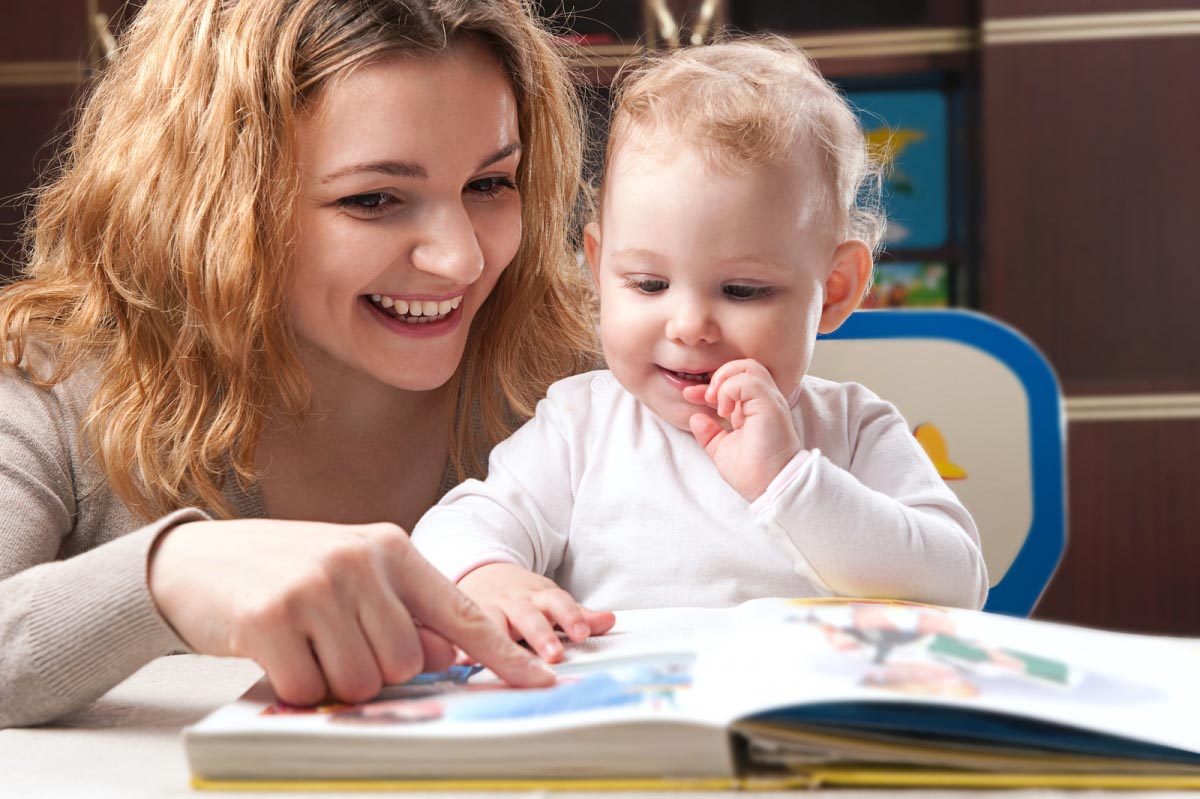“Read me a story, then I will go to sleep.” Our mother or father may not have realized that they weren’t just reading a bedtime story to calm us down so we would go to sleep. First 5 California’s Research shows 90 percent of a child’s brain develops during their first five years. This is a critical time of a child’s life. Being read to as a child is the number one predictor of academic success. They will do better in school and in life.
The problem is that “many young mothers are not reading books to their children any more,” according to Spokane Cares.
The noted author Ray Bradbury said “**You don’t have to burn books to destroy a culture. Just get people to stop reading them.**”
30% Percent Of Children Under The Age Of 2 Have Television Sets In Their Bedroom
59 percent of children under 2 years old watch two hours of TV every day.
The American Academy of Pediatrics recently issued a warning urging parents not to let infants and toddlers watch TV. Giving these class of viewers no known benefits, television impairs cognitive skills and wastes crucial brain development time that should be spent conversing with real people, says infant language expert Roberta Golinkoff, co-author of “Einstein Never Used Flashcards: How Our Children Really Learn—And Why They Need to Play More and Memorize Less.
“Language is crucial to children’s learning, and the language they get from the television is not tailored to their individual needs. It will not answer their questions or follow their leads, which is how you create smart kids,” according to noted author Elizabeth A. Vandewater.
Some More Scary Stats
Spokane Cares uncovered some very scary statistics:
- 61% of low-income families have no books at all for their children in their homes.
- Only 53% of preschool-age children are read to daily by a family member.
- Early childhood education yields benefits up to four times the cost of the programs when the costs of special education, criminal activity, and reduced adult incomes are considered.
- Millions of people cannot read a job application, a medical form, or write a check.
- Education reduces the chance of being poor. More than 75% of those on welfare are illiterate.
- One-fifth of high school graduates cannot read their diplomas. Many students who can’t read still graduate from high school—cutting them off from so much in their world. If you can’t read, how can you improve your circumstances?
- More than 20% of American adults are functioning at the lowest literacy level—unable to read a simple story to a child. At most, these individuals can total the entry on a bank deposit slip or locate information in a short news article. But many do so with difficulty, and others can’t at all.
- Nearly 3 out of 5 prison inmates are illiterate.
- 85% of all juvenile offenders have reading problems.
- Over 1 million children drop out of school every year. Children without some basic literacy skills by the time they enter school are more likely to drop out later.
- About 50% of America’s unemployed youths are functionally illiterate—meaning they cannot carry out simple tasks like balancing a checkbook or reading drug labels.
- 44 million American adults are poor readers or functionally illiterate. 21 million Americans cannot read at all. Research shows that 65% of the children of illiterate adults will themselves become illiterate adults.
What You Can Do
- Take time out of your day and read to your child. This should be a priority. Also read to your child during the day when they are more alert.
- Read a little slower to ensure their child could keep up with the story line and don’t stipulate how long the reading should go for. Your child should be inspired by your reading.
- In 2014, First 5 California started a media campaign called “Talk, Read, Sing,” which encourages parents to interact with their young children to promote brain development and emotional and social growth. In addition to promoting brain and social development, the actions of talking, reading, and singing with young children help prepare them for school.
- A child who is raised in a home containing at least 500 books is 36 percent more likely to graduate from high school and 19 percent more likely to graduate from college than an otherwise similar child raised in a home containing few or no books.
- “Children learn more from what we do than from what we say. Parents who love to read demonstrate to their children that reading is interesting, enjoyable, and worthwhile.” according to noted author M.D.R. Evans
